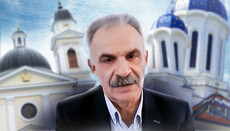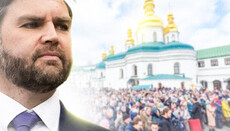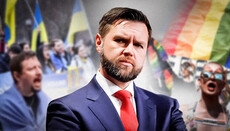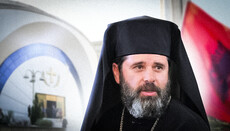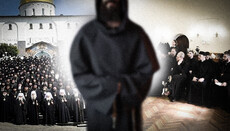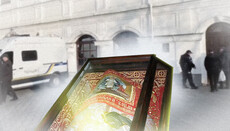Gospel or liberal values: Pope Francis has picked sides
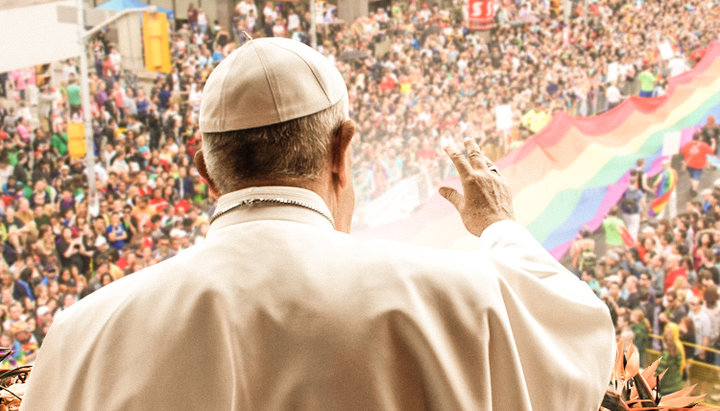
The Pope endorses "same-sex civil unions". What can this imply to Catholics, secular society and the Orthodox?
Pope Francis has expressed his sympathies for gays and lesbians for a long time. However, until recently, he spoke in such a way that his words could be interpreted as sympathy, but not support for the sodomites. However, on Wednesday, October 21, 2020, he made it clear-сut: "They have a right to a family." How was this statement made, what does it mean, and what consequences can it lead to? Let's figure it out.
“Homosexual people have the right to be in the family. They are children of God and they have a right to a family. No one should be excluded or made to suffer because of this. We need to make civil union laws. Thus, they will be protected under the law," these words sounded in the comments of Pope Francis in "Francesco" documentary directed by Yevgeny Afineevsky.
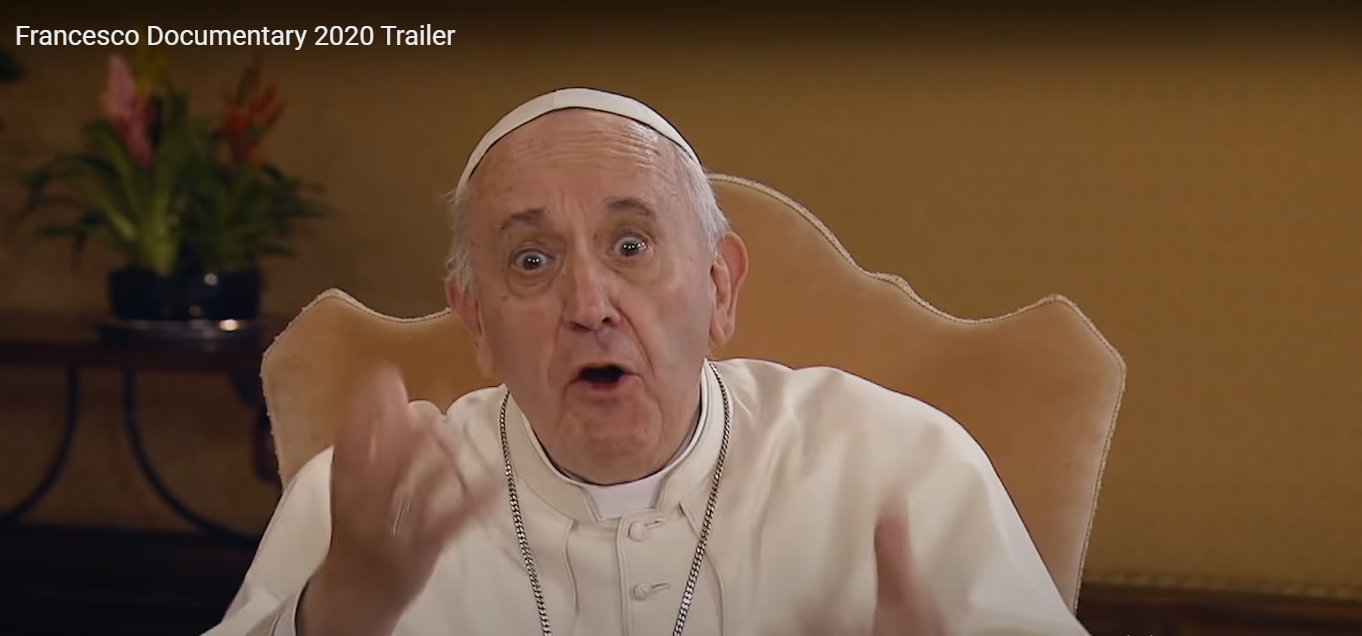
The premiere of the film "Francesco" took place on October 21, 2020 at the Rome Film Festival. The Pope's words hit like a bombshell. They have been discussed in every way on all the world's leading media platforms. The vast majority of commentators, both secular and religious, regardless of how they relate to these words of the pontiff, interpreted them as a new position of the Vatican on the issue of the same-sex union. There is reason to believe that it is so, but ... Let's pay attention to the circumstances under which these revolutionary words were made public.
Firstly, the Pope's words are neither a Bulla or an encyclical, nor any other official document or speech. This is just a commentary to the film.
Secondly, the Pope is not talking about a change in the official position of the Catholic Church on gay unions, he is not talking about the church blessing of these unions. He talks about the need to legitimize them at the legislative level.
Thirdly, the Pope says that gay couples cannot be "made to suffer". Hence, it follows the buzz pattern "Oh, they are suffering ..." used in all manner of ways everywhere – from our "theyarechildren" (during the Ukrainian Maidan – Ed.) to the American BLM.
However, the Pope takes another, a very serious step, towards the recognition of the LGBT by the Vatican. He prepares public opinion for this, although, on the other hand, leaves himself room for maneuver. The Catholic leader threw in his information message and is checking the response to think about next steps.
There is one more important circumstance: Pope Francis's statement about support for gay marriages was made in Rome at the very moment when Patriarch Bartholomew of Constantinople was in Rome on an official visit. On this day, October 21, he was awarded an honorary doctorate in philosophy from the Pontifical University of Antonian. And two days earlier, Patriarch Bartholomew, together with Pope Francis, participated in the ecumenical prayer in the Roman Basilica of Santa Maria in Trastevere.
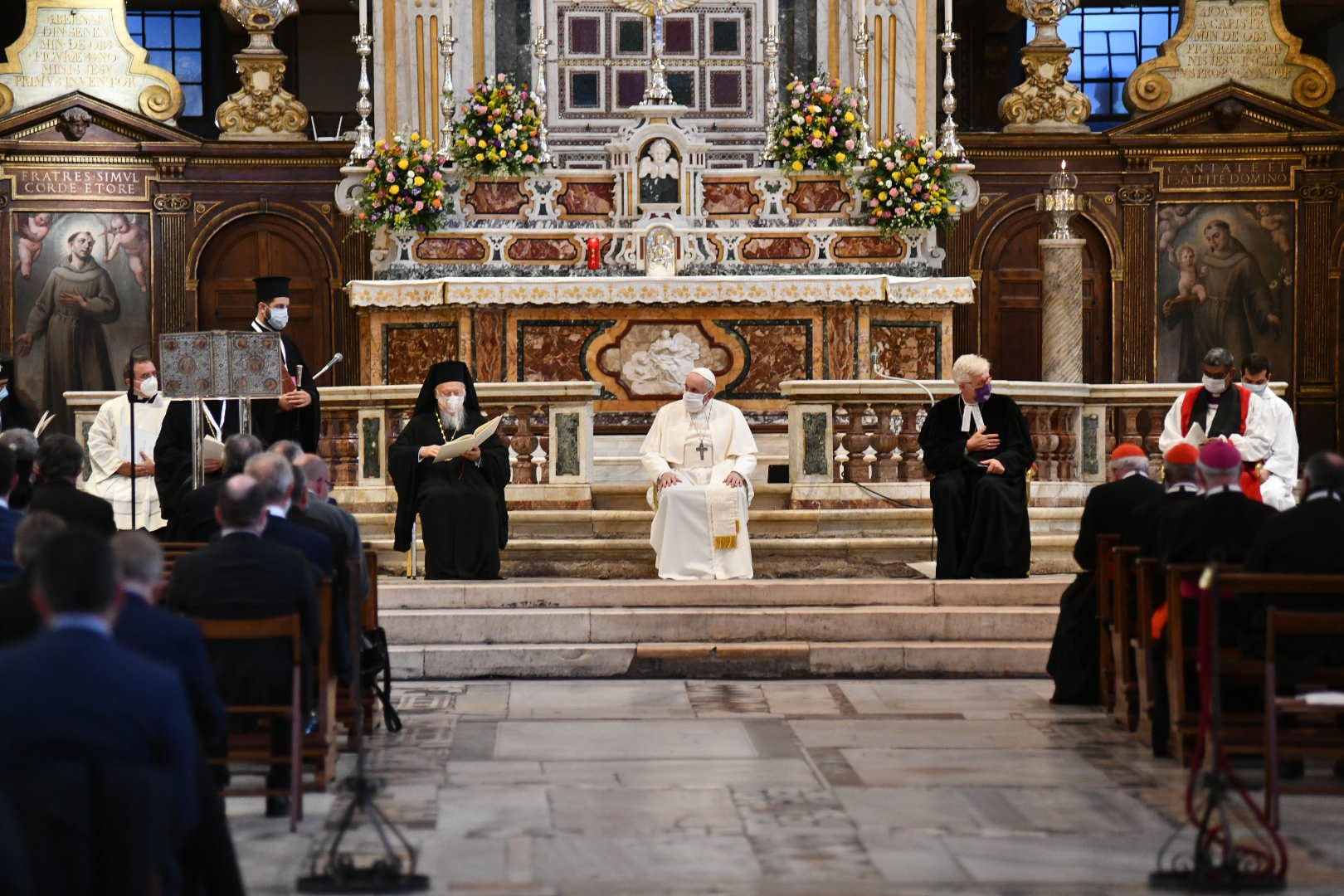
Therefore, the Pope placed Patriarch Bartholomew in rather an ambiguous position. The patriarch, clearly violating the 10th rule of the holy Apostles "If any one shall pray, even in a private house, with an excommunicated person, let him also be excommunicated," is pacing towards the Pope, while the Pope at the same time is pacing towards sodomites. Question: do they go together? In one direction?
There was only one way out of this ambiguous situation for Patriarch Bartholomew – without any hesitation to dissociate himself from the position of the Pope and declare an Orthodox attitude towards gay unions. But nothing of the kind sounded from the lips of Patriarch Bartholomew in any form. We will return to this later, but first let's see how the words of Pope Francis evoked a response from the secular audience, as well as from within the Catholic Church itself.
Reaction to the Pope's Words in Secular Society
In secular society, the Pope's recognition of sodomite unions caused delight up to the "orgy of enjoyment". “This decision of the Pope is, of course, extremely welcome from our perspective,” said UN Secretary General António Guterres. “It was like the arrival of Christmas for me ...” followed one of the respondents in the popular American program “The View” on ABC TV channel.
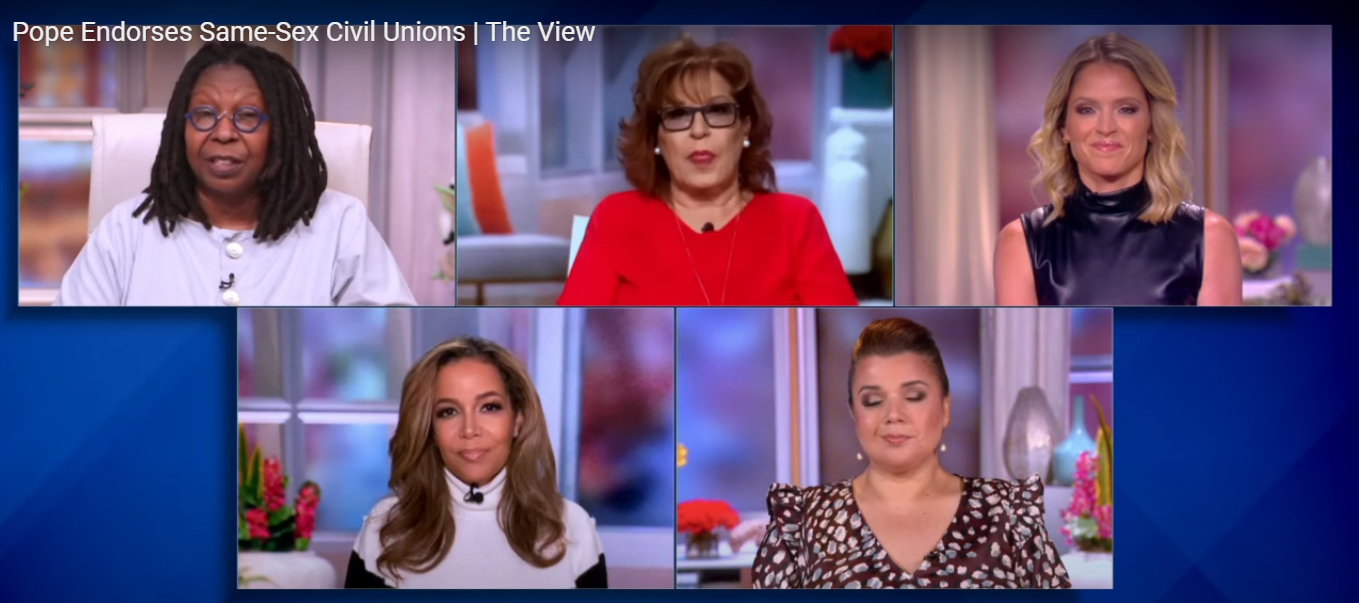
Examples of enthusiastic statements, social media posts, politicians' endorsements and so on can go on for a very long time. But this is not necessary. It is quite clear that with rare exceptions, the words of Pope Francis will confirm the positions of those political and social forces that advocate the introduction of gender ideology, the expansion of the rights of LGBT people, and also, importantly, the introduction of responsibility, up to criminal, for those who dare to criticize or who are not tolerant to speak out about LGBT people.
The parade of legislative recognition of gay marriage by different countries will continue under the banner of Pope Francis. He himself will receive the laurels of a progressive, tolerant, loving religious leader with a broad outlook on life. He may have been even nominated for the next Nobel Prize. Will this increase the number of Catholics in the world? No, of course, but gays and lesbians will be able to sleep "with a clear conscience".
Reaction within the Catholic Church
Within the Catholic Church itself, the Pope's words provoked mixed reactions. The world's leading media are running interviews with Catholic priests who speak out positively about the Pope's recognition of same-sex civil unions. The phrase "LGBT Catholics" sounds like a norm, not an oxymoron.
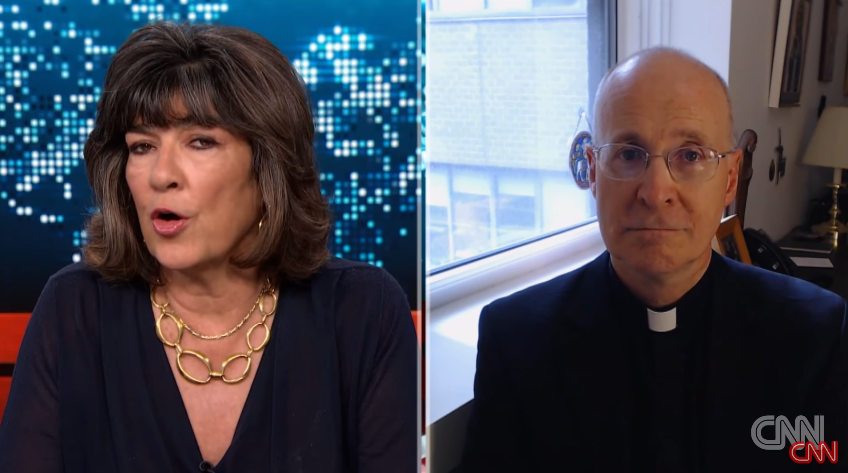
It is easy to see that these media resources are trying to create the semblance of universal approval of the position of Pope Francis. It looks as if Pope Francis finally gave the world what everyone had been waiting for. And the German Episcopal Conference, whose representatives declare that “in moral theology, we have long been moving towards saying that if true love and faithfulness live even among same-sex partners, we must accept it,” he applauds the Pope standing up.
By the way, the same conference, which has a great influence on the Vatican, also proposes to officially recognize the female priesthood and to allow “Eucharistic communion” with Protestants.
Still not all Catholics are ready to share in the jubilation over the recognition of gay marriage. Some Catholic hierarchs openly declare that the Pope's words about same-sex civil unions are contrary to the position of the Church and the Holy Scriptures. For example, Catholic Bishop Thomas Joseph Tobin posted on his diocese's website the following statement: "The apparent support of the Holy Father for the recognition of civil unions for same-sex couples ... clearly contradicts the Church's long-standing doctrine regarding same-sex unions."
A number of Catholic hierarchs are trying to convince everyone that the Pope was misunderstood or that his words are nothing more than a personal opinion.
Bishop of the Roman Catholic Church in Ukraine Vitaliy Kryvytskiy: “In connection with this (backing by the Pope of same-sex civil unions – Ed.), we remind you that the dodtrine of the Catholic Church on homosexual relationships and their legal recognition remains unchanged. <...> As for persons with homosexual inclinations, Pope Francis always speaks about them in words full of mercy, in which there is "the fullness of justice and the bright expression of God's truth" (Amoris Laetitia 311). Confirmation of this is his words: "We are all people, we have dignity, if a person has this or that tendency, it does not take away its human dignity."
According to his colleague, Bishop Radoslav Zmitrovich, Chairman of the Commission on Family Affairs under the Episcopate of the RCC of Ukraine, saying that “homosexuals have the right to be part of the family and have the right to a family,” Pope Francis meant the family, which is the parish community.
The Ukrainian Uniates are particularly trying to justify the Pope. It is especially inconvenient for them to explain to their rather conservative flock such freethinking of their “holy father”. For example, Yuri Podlesny, chairman of the UGCC Commission on Family and Laity Affairs, said in one interview: “The Pope did not recognize homosexual relationships. He did not recognize them as a marriage, much less a Sacrament. All that the Pope said was that it could be, in principle, a state law to somehow regulate these ties. Full stop ..." In other words, the Pope recognized the right of gay men to marry, but did not recognize it as marriage. Typical Catholic casuistry.
Did the Pope initiate the split in the RCC?
For about half a century, to be precise, since the Second Vatican Council in 1962, the process of stratification into liberals and conservatives has been going on in Catholicism. During this time, one or the other groupstrengthening of, but in the overall standings, the liberals, of course, win. They sincerely believe that the Catholic Church can find itself a place in the society of the future only if it meets the demands of this society, follows its tendencies. Otherwise, it will be inevitably marginalized in history. For example, the German bishop Helmut Dieser puts the question bluntly: either the Vatican will recognize the LGBT, or it will turn into a sect.
The conservative wing believes otherwise. Its representatives urge to stand firmly for the teachings of the Catholic Church and not to compromise with a volatile world. These Catholic hierarchs regard Pope Francis as an apostate and heretic. For example, in 2017, a group of conservative Catholic theologians in an open letter accused Pope Francis of heresy. He replied that he takes it with humor. But with the last statement of the Pope about the recognition of same-sex civil unions, it is no longer funny.
One should expect seriously enhanced contradictions within Catholicism and aggravated struggle between liberals and conservatives. Time will tell whether the representatives of both camps will get along in one religious organization or not. There are prerequisites for both. History knows periods when popes and antipopes acted in parallel, supported by different groups within Catholicism. But the logic of recent times suggests that the strengthening of the "liberal lobby", which the pope so powerfully backed in his words about gay marriage, is irreversible. Most likely, a split awaits the Catholic Church.
One should expect seriously enhanced contradictions within Catholicism and aggravated struggle between liberals and conservatives.
What about the ecumenical movement now?
As for the Orthodox-Catholic relations, then, of course, Pope Francis's endorsement of same-sex civil unions will to some extent complicate the rapprochement of the Patriarchate of Constantinople with the Vatican. Perhaps in this process of merging, Phanar will end up altogether alone. Let us assume that the Alexandrian and Greek Churches recognized the Orthodox Church of Ukraine. This is anti-canonical, but somehow understandable. However, moving closer to Catholics who recognize gay marriage is another matter entirely. For this, both the hierarchs of these Churches and their flock may not be ready.
It seems that now is the time for the Russian Orthodox Church to declare about the invariability of its attitude to the sin of Sodom, as well as about the dead end of religious dialogue with those religious organizations that recognize gay marriage. It is no secret that in the ROC there are supporters of rapprochement with Catholics in one form or another. But Pope Francis's recent positive statement about LGBT people clearly shows the futility of such a rapprochement. The Orthodox Church is the Church of Christ, not the society of the future. She must keep the commandments of the gospel and not indulge sinful desires of people. Whoever wants to come to Christ – let them go to the Orthodox Church; whoever wants to continue sinning with the approval of the Pope – accordingly ...
Above, it was said about the endorsement of same –sex unions by the Pope, despite the fact that he only expressed a desire to pass secular laws protecting the rights of such unions. And of course, those who argue that in his words the Pope did not in any way change the teaching of the Catholic Church about gay marriage are formally right. But this is only formal. In fact, he approved them and thereby brought closer the moment of official recognition. Now any sodomite can say that the Pope recognized his right to have a family. Here, by the way, it's time to recall the Catholic dogma about the infallibility of the Pope in matters of faith and morality: “This infallibility is possessed by the power of his mission, the Roman High Priest, the head of the Panel of Bishops, when he, as the supreme shepherd and teacher of all believers, who is entrusted 'to establish his brothers in faith', proclaims the position of the doctrine of faith and morality as his ultimate decision."
Whoever wants to come to Christ - let them go to the Orthodox Church, whoever wants to continue sinning with the approval of the Pope – accordingly ...
So, dear Catholics, you should either follow the Pope and recognize the right of gays and lesbians to marry or abolish the dogma of infallibility. Although you will probably go back to what you are accustomed to: you will argue that "the pope said this" and "the pope declared that”. Of course, you know better.
And the last thing. The Gospel gives us an example of how you can love a sinner, not condemn him/her, but at the same time not indulge his/her sinful inclinations.
“The scribes and the Pharisees brought in a woman caught in adultery. They made her stand before the group and said to Jesus, “Teacher, this woman was caught in the act of adultery. In the Law Moses commanded us to stone such women. Now what do you say?” This they said to test him, that they might have some charge to bring against him. But Jesus bent down and started to write on the ground with his finger. When they kept on questioning him, he straightened up and said to them, “Let any one of you who is without sin be the first to throw a stone at her. Again he stooped down and wrote on the ground. At this, those who heard began to go away one at a time, the older ones first, until only Jesus was left, with the woman still standing there. Jesus straightened up and asked her, “Woman, where are they? Has no one condemned you?” “No one, Lord,” she said. “Then neither do I condemn you,” Jesus declared. “Go and from now on sin no more” (John 8:3-11).
It makes a difference. Christ says: “Go and sin no more,” while Pope Francis: go and build a gay family, you have the right to do so.
